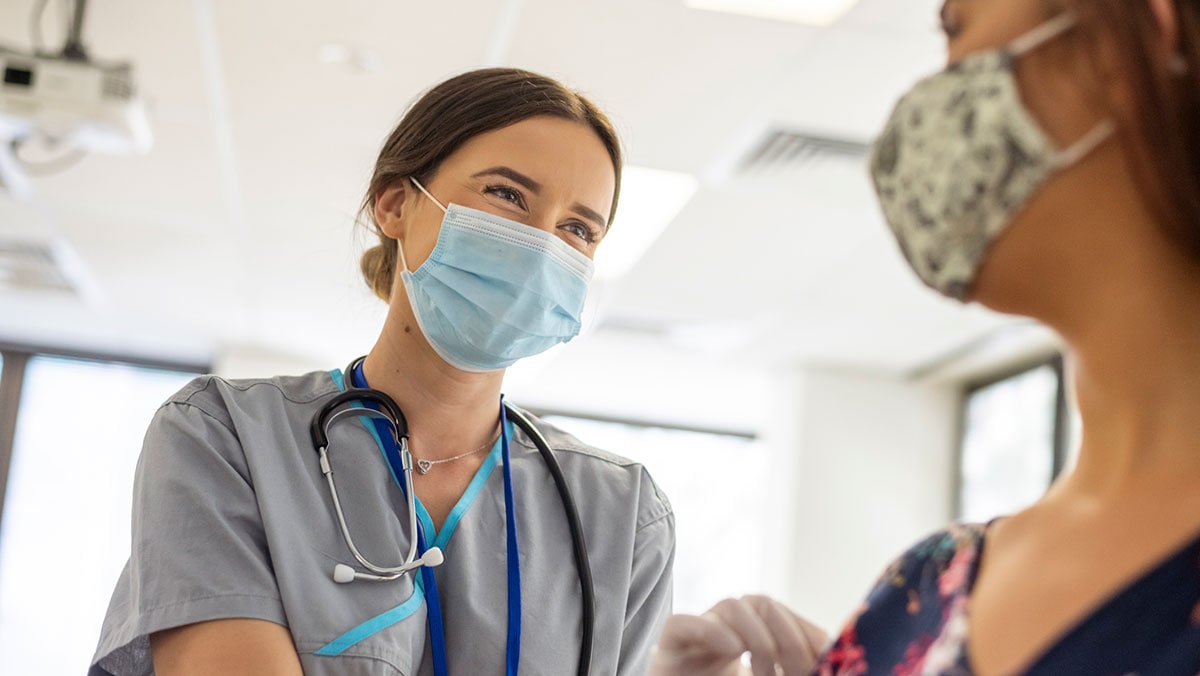Key points
- You’ll need a blood sugar test to find out if you have prediabetes or diabetes.
- Testing is simple, and results are usually available quickly.

Why get tested
Prediabetes and type 2 diabetes often don't have any symptoms. (Type 1 diabetes is different—symptoms can develop quickly and can be severe.)
That's why people with any risk factors are urged to ask their doctor if they should be screened. Being screened means getting tested when you don't have any symptoms.
Catching prediabetes early can help people prevent or delay type 2 diabetes. Finding out they have type 2 diabetes—and taking action—can help people prevent or delay serious health complications.
Getting tested is simple and quick. Your blood will be drawn at your doctor's office or at a clinic so your blood sugar can be tested. Results are usually available quickly.
When to get tested
Type 2 diabetes or prediabetes
Ask your doctor about getting tested for prediabetes or type 2 diabetes if you have any of the risk factors. If you had your blood sugar tested at a health fair or pharmacy, follow up with your doctor. Your doctor may want to re-test you to make sure the results are accurate.
Type 1 diabetes
If your doctor thinks you have type 1 diabetes, your blood may also be tested for autoantibodies. These substances show your body is attacking itself and are often found with type 1 diabetes but not with type 2.
You may have your urine tested for ketones. Ketones are produced when your body burns fat for energy. Having ketones in your urine indicates you have type 1 diabetes instead of type 2.
Gestational diabetes
Gestational diabetes usually develops around the 24th week of pregnancy. You'll probably be tested between 24 and 28 weeks.
If you're at higher risk for gestational diabetes, your doctor may test you earlier. If your blood sugar is higher than normal early in your pregnancy, you may not have gestational diabetes. You may have type 1 or type 2 diabetes instead.
Types of tests
Tests for type 1 diabetes, type 2 diabetes, prediabetes, and gestational diabetes
A1C test
The A1C test measures your average blood sugar level over the past 2 or 3 months.
- Normal: below 5.7%
- Prediabetes: 5.7–6.4%
- Diabetes: 6.5% or above
Fasting blood sugar test
This measures your blood sugar after an overnight fast (not eating).
- Normal: 99 mg/dL or below
- Prediabetes: 100–125 mg/dL
- Diabetes: 126 mg/dL or above
Glucose tolerance test
This measures your blood sugar before and after you drink a liquid that contains glucose. You'll fast (not eat) overnight before the test and have your blood drawn to measure your fasting blood sugar level. Then you'll drink the liquid and have your blood sugar level checked. These checks usually happen at 1 hour, 2 hours, and possibly 3 hours afterward.
At 2 hours:
- Normal: 140 mg/dL or below
- Prediabetes: 140–199 mg/dL
- Diabetes: 200 mg/dL or above
Random blood sugar test
This measures your blood sugar at the time you're tested. You can take this test at any time and don't need to fast (not eat) first.
- Normal: n/a
- Prediabetes: n/a
- Diabetes: 200 mg/dL or above
Tests for gestational diabetes
Glucose screening test
This measures your blood sugar at the time you're tested. You'll drink a liquid that contains glucose. Then, 1 hour later your blood will be drawn to check your blood sugar level. A normal result is 140 mg/dL or lower. If your level is higher than 140 mg/dL, you'll need to take a glucose tolerance test.
Glucose tolerance test
This measures your blood sugar before and after you drink a liquid that contains glucose. You'll fast (not eat) overnight before the test and have your blood drawn to measure your fasting blood sugar level. Then you'll drink the liquid and have your blood sugar level checked. These checks usually happen at 1 hour, 2 hours, and possibly 3 hours afterward.
Results can differ depending on the size of the glucose drink and how often your blood sugar is tested. Ask your doctor what your test results mean.
After a diagnosis
If your results show you have type 1, type 2, or gestational diabetes, talk with your doctor about a detailed treatment plan. Your plan should include:
- A referral to diabetes self-management education and support services.
- Specific steps you can take to be your healthiest.
